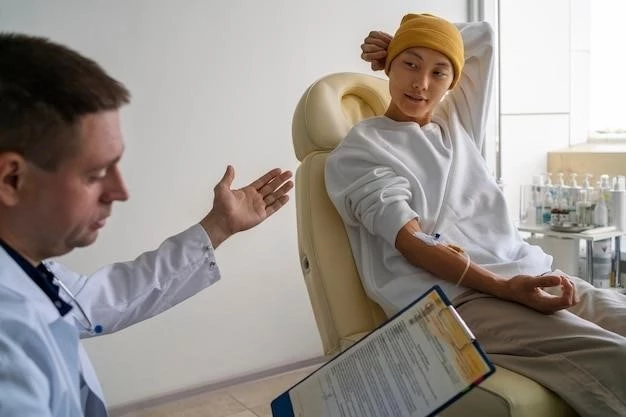Understanding Fucosidosis
When exploring the realm of Fucosidosis, it is crucial to comprehend the genetic complexities, symptoms, diagnosis methods, treatment options, and ongoing research efforts. By delving into the intricacies of this lysosomal storage disease, one can gain valuable insights to navigate through this rare genetic disorder efficiently.
Overview of Fucosidosis
Fucosidosis is a rare lysosomal storage disease characterized by a deficiency of the enzyme fucose alpha-L-fucosidase. This enzyme deficiency leads to the accumulation of undegraded glycosphingolipids in various tissues and organs of the body. The condition typically manifests in early childhood and progressively worsens over time.
Individuals with fucosidosis may experience a range of symptoms, including hepatosplenomegaly (enlargement of the liver and spleen), skeletal abnormalities, angiokeratoma corporis diffusum (small dark red spots on the skin), neurological deterioration, mental retardation, and other neurological complications. The disease is classified as a progressive disorder, with symptoms worsening as the condition advances.
Due to the rarity of fucosidosis, it is essential for individuals and families affected by this genetic disorder to seek specialized medical care and support. Management of the disease typically involves a multidisciplinary approach to address the various symptoms and complications associated with fucosidosis. Supportive and palliative care are often crucial components of the treatment plan.
Research studies and clinical trials are ongoing to better understand the underlying mechanisms of fucosidosis, develop new treatment options, and improve the quality of life for individuals living with this condition. Participation in clinical trials can provide access to experimental therapies and contribute to the advancement of medical knowledge in the field of lysosomal storage diseases.
Causes and Symptoms
Fucosidosis is caused by a genetic mutation that results in a deficiency of the enzyme fucose alpha-L-fucosidase. This deficiency impairs the breakdown of glycosphingolipids, leading to the accumulation of these substances in various tissues and organs of the body. The genetic mutation responsible for fucosidosis is inherited in an autosomal recessive pattern, meaning that both parents must carry a copy of the mutated gene for their child to develop the condition.
The symptoms of fucosidosis can vary widely in their presentation and severity. Early signs of the disease may include hepatosplenomegaly, skeletal abnormalities, and developmental delays. As the condition progresses, individuals may experience neurological deterioration, including intellectual disability, seizures, and vision and hearing impairment. Angiokeratoma corporis diffusum, small dark red spots on the skin, is a common dermatological feature of fucosidosis.
It is essential for individuals with fucosidosis and their families to work closely with healthcare providers who have experience in managing rare genetic disorders. A comprehensive evaluation and ongoing monitoring of symptoms are crucial for addressing the complex medical needs associated with fucosidosis. Genetic counseling can also be beneficial for families, providing information on the inheritance pattern of the condition and available testing options for carriers.
By understanding the causes and symptoms of fucosidosis, individuals and families can make informed decisions about treatment and care strategies to enhance the quality of life for those affected by this rare genetic disorder.

Diagnosis and Prognosis
Diagnosing fucosidosis involves a combination of clinical evaluation, biochemical testing, imaging studies, and genetic testing. Healthcare providers may conduct blood tests to assess enzyme levels, perform imaging studies such as X-rays or MRI scans to evaluate organ enlargement or skeletal abnormalities, and conduct genetic testing to confirm the presence of mutations associated with fucosidosis. A thorough diagnostic process is essential for accurately identifying the condition and developing a personalized treatment plan.
The prognosis for individuals with fucosidosis varies depending on the severity of symptoms, age of onset, and overall health status. Fucosidosis is a progressive disorder, meaning that symptoms tend to worsen over time. The neurological complications and organ involvement associated with the condition can significantly impact the quality of life and life expectancy of affected individuals.
It is crucial for individuals with fucosidosis and their families to work closely with a team of healthcare professionals to monitor symptoms, address complications, and provide supportive care. Regular follow-up visits with clinicians who specialize in lysosomal storage diseases can help optimize treatment strategies and improve outcomes for individuals living with fucosidosis.
While fucosidosis presents significant challenges, advances in medical research and supportive care interventions offer hope for improved management of the condition. By staying informed about the latest developments in fucosidosis treatment and participating in clinical trials when appropriate, individuals and families can play an active role in shaping the future of care for this rare genetic disorder.
Treatment Options
Currently, there is no cure for fucosidosis, and treatment focuses on managing symptoms, providing supportive care, and enhancing quality of life. A multidisciplinary approach involving various healthcare specialists is typically recommended to address the complex medical needs of individuals with fucosidosis.
Supportive care plays a central role in managing fucosidosis and may include interventions to address specific symptoms such as hepatosplenomegaly, skeletal abnormalities, and neurological complications. Physical therapy, occupational therapy, and speech therapy can help individuals maintain mobility, improve fine motor skills, and enhance communication abilities.
Palliative care, aimed at improving comfort and quality of life, is also an essential component of the treatment plan for individuals with fucosidosis. This holistic approach focuses on symptom management, emotional support, and communication with patients and families to ensure that their physical, emotional, and spiritual needs are met.
Research studies and clinical trials are underway to explore potential treatment options for fucosidosis, including enzyme replacement therapy, gene therapy, and substrate reduction therapy. Participation in clinical trials can provide access to experimental treatments and contribute to advancements in the understanding and management of this rare genetic disorder.
Individuals living with fucosidosis and their families should actively engage with healthcare providers to discuss treatment options, access support services, and stay informed about the latest research developments. By collaborating with a specialized medical team and participating in research initiatives, individuals affected by fucosidosis can contribute to the ongoing efforts to improve outcomes and quality of life for those living with this challenging genetic condition.
Research and Clinical Trials
Ongoing research studies and clinical trials play a crucial role in advancing the understanding and treatment of fucosidosis. These initiatives aim to explore new therapeutic approaches, investigate disease mechanisms, and improve the overall management of this rare genetic disorder.
Research studies in fucosidosis focus on unraveling the underlying molecular pathways involved in the disease progression, identifying potential biomarkers for early diagnosis, and developing innovative treatment strategies. By gaining insights into the pathophysiology of fucosidosis, researchers can pave the way for targeted interventions that may slow disease progression or alleviate symptoms.
Clinical trials offer individuals with fucosidosis the opportunity to participate in the evaluation of novel therapies and interventions. These trials may assess the safety and efficacy of experimental treatments such as enzyme replacement therapy, substrate reduction therapy, and gene therapy. Participation in clinical trials can provide access to cutting-edge treatments and contribute to the advancement of medical knowledge in the field of lysosomal storage diseases.
Individuals living with fucosidosis and their families are encouraged to stay informed about ongoing research studies and clinical trials. By working closely with healthcare providers and research teams, individuals affected by fucosidosis can actively engage in the development and assessment of new treatment options. Participation in research initiatives empowers patients to play a role in shaping the future of care for fucosidosis and other rare genetic disorders.
